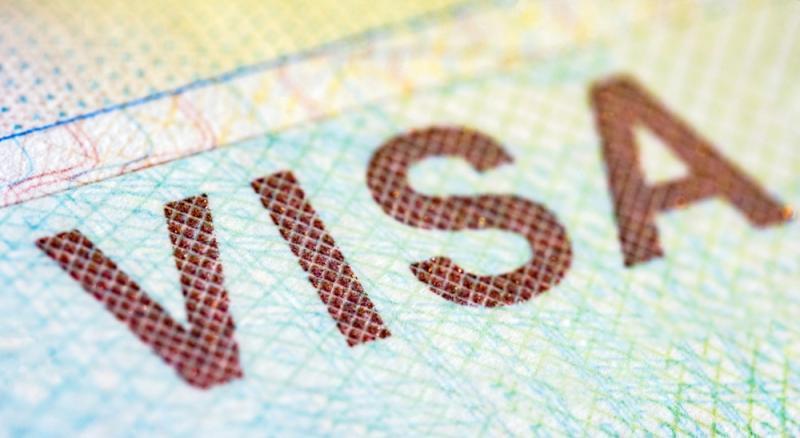WORKING ABROAD: CONTRACTS AND ADMINISTRATIVE FORMALITIES

DIFFERENT TYPES OF CONTRACT
There are many legal solutions available to you, depending on your destination country and the type of assignment you wish to carry out. The different types of contract you can apply for are either governed by French legislation or by the local legislation of the host country.
Contracts governed by French or European legislation :
- Volontariat international en entreprise (VIE): This enables you to carry out a paid professional assignment of between 6 and 24 months with a French company abroad. You are under the protection of the French Embassy and supervised by Business France throughout your VIE assignment. Learn more
- Volontariat international en administration (VIA): This enables you to carry out a paid professional assignment of between 6 and 24 months in a French government body abroad. This includes: embassies, consulates, French alliances, research institutes, the French Treasury, cultural cooperation departments, Business France offices, etc. Learn more
- Volunteering for International Solidarity (VSI): VSI is aimed primarily at graduates with skills and initial experience. VSI enables you to work with approved organisations on international solidarity projects, particularly in the following areas: education, urban and rural development, health and emergency aid. Assignments take place outside Europe if you are European. Learn more
- The European Solidarity Corps (ESC): The European Solidarity Corps gives young people the opportunity to volunteer on projects organised by non-profit organisations to help communities and individuals throughout Europe. Solidarity covers a wide range of areas, for example: inclusion, reception and integration of refugees and migrants, citizenship and participation, environment and nature protection, health and well-being, education and training, creativity and culture, sport, etc. Learn more
- Expatriation: An employee in the private sector may be required to work abroad under expatriate status. The employee may be recruited directly by a foreign company under a contract governed by local law, or recruited by a French company on behalf of a foreign company under a contract governed by French or local law. In these two cases, the initial employment contract with the employer located in France may be either suspended or terminated. The expatriation contract has many advantages, which is why it is very costly for the company. Learn more
Contracts governed by the local legislation of the host country :
- Internship: Internships abroad are governed by local law. You should therefore check that you meet all the conditions for obtaining a visa before you leave. There are many bilateral agreements between countries, so the procedure for obtaining a visa may vary depending on your nationality. For more information on the specifics of each country, please consult the "specific recommendations" section below.
- The local contract: A local contract requires you to find out all you can about the employment law in the host country. Employees should also be aware of tax variations between France and the host country: the gross salary may be the same, but social security contributions may affect the net salary. It should be noted that the local contract obliges the employee to resign from his former post. There is therefore no guarantee of re-employment on return, unlike expatriation. In both cases, the employee is no longer covered by French social security. They often have to take out private insurance. On the other hand, pension contributions are taken into account by France. Learn more
ADMINISTRATIVE FORMALITIES
If you opt for work experience on a local contract, in most cases you will need a visa to travel to the host country and work there legally. There are different types of visa (temporary work permit, internship visa, diplomatic visa, single-entry or multiple-entry visa, etc.) The visa you qualify for will depend on the duration, salary and type of contract you can provide when you apply.
Our advice
- Check the validity of your passport: it must expire at least 6 months after your return to France.
- Contact the consulate to check the entry and residence conditions in the host country and to find out how long it takes to obtain a visa.
- Talk to your employer about the conditions for obtaining a visa.
- Immigration rules change regularly and tend to become stricter. In general, it takes longer to obtain work visas than student or tourist visas: allow at least 3 to 6 weeks if there are no obstacles of any kind.
specific recommendations :
For the countries listed below, please read very carefully the specific information on obtaining "work experience visas" or "work permits":
USEFUL LINKS
- GoinGlobal offers country and city guides with regularly updated local resources for finding internships and jobs. Each guide also contains a wealth of information on residence permits and work visas, as well as advice on how to successfully complete the administrative formalities, written by specialist immigration lawyers for each destination.
- France Diplomatie : Before undertaking a work placement abroad, you should read the advice and recommendations issued to travellers depending on the country of destination on the website of the Ministry of Europe and Foreign Affairs (countries classified by green, yellow, orange and red zones).
- Sciences Po International Affairs Department (DAI) : If your internship project is taking place in a high-risk area (orange or red zone), you must contact the person in charge of the targeted geographical area at Sciences Po's DAI by e-mail, with a copy to Sciences Po Carrières, in order to request authorisation to leave for the high-risk country. You must obtain this e-mail from the International Affairs Department before submitting your internship application online.













